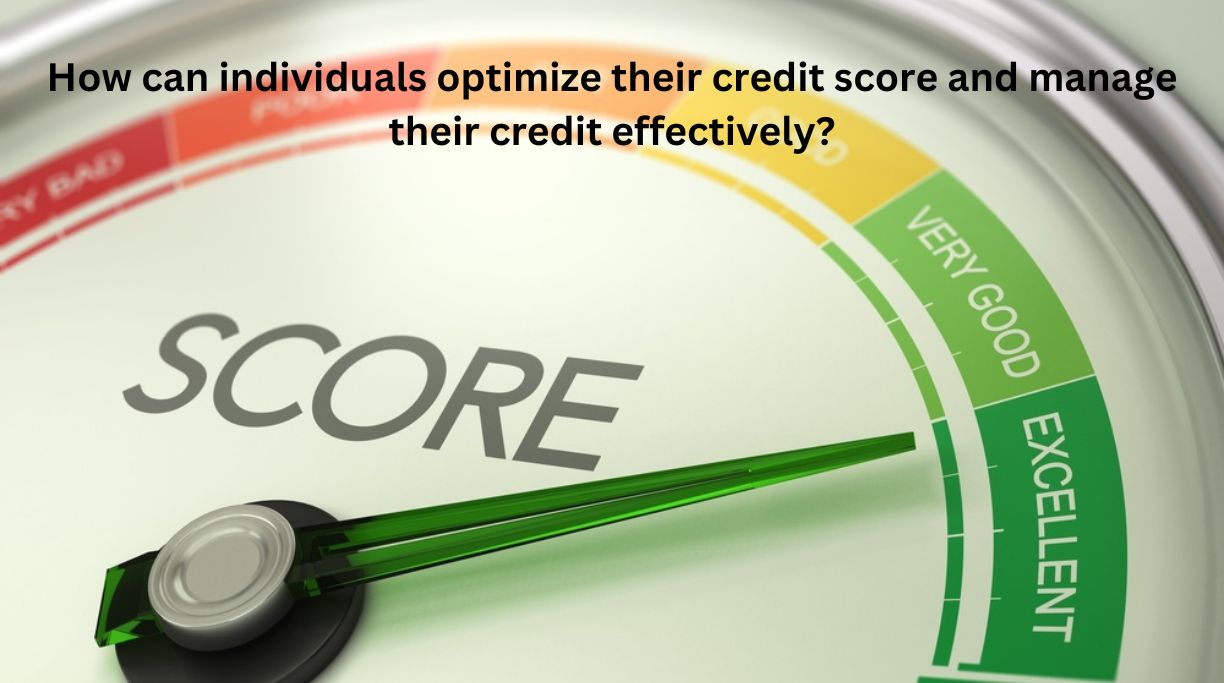One important metric in the complicated world of personal finance is the credit score. Your credit score is a key that can both open doors to financial opportunities and put obstacles in your way of achieving financial success. It is more than just a number. We’ll go over the specifics of managing your credit and raising your credit score in this post.
What is Credit Scores?
Explanation of credit scores
A person’s creditworthiness is represented numerically by their credit score, which normally ranges from 300 to 850. Numerous factors, such as payment history, credit utilization, length of credit history, types of credit in use, and recent credit inquiries, are used to determine this three-digit number. Credit scores are used by lenders to evaluate a borrower’s risk before making a loan or granting credit. Improved financial responsibility and favorable loan terms are more likely to be obtained with a higher credit score; conversely, a lower score may result in higher interest rates or restricted credit availability. A person’s ability to manage their finances depends on their understanding of these factors.
Elements influencing credit ratings
Numerous important factors impact credit scores. The most important one, payment history, shows whether you have a history of on-time debt repayment. Scores are impacted by credit utilization, or the ratio of credit used to available limit. The length of credit history takes into account the duration of account activity. Credit types in use evaluate the range of accounts, including loans and credit cards. Recent credit inquiries can marginally reduce scores, particularly if they are numerous. Bankruptcies and tax liens are examples of public records that have a big impact on credit. Comprehending and handling these variables enable people to make knowledgeable financial choices and preserve a sound credit history.
How To Check Your Credit History?
Your credit report is a snapshot of your financial situation that has a significant impact on it. It is essential to regularly monitor it for a number of reasons. First of all, it makes it possible for you to identify any mistakes that could lower your credit score. Errors like unapproved accounts or inadvertent late payments can be quickly fixed, protecting your creditworthiness.
How to Get a Credit Report for Free?
It is wise and legally your right to regularly obtain your credit report. You are legally entitled to one free credit report per year from Equifax, Experian, and TransUnion, the three main credit bureaus. Visit the official website of AnnualCreditReport.com, the only accredited source of free credit reports, to obtain your report. Proceed with the straightforward online procedure, supplying the requisite personal data to authenticate your identity. After proving your identity, you can download and check your credit report to make sure it is accurate and to take preventative measures to keep your credit profile in good standing. Checking your credit report on a regular basis allows you to be proactive in identifying errors early on, safeguarding your creditworthiness and assuring a solid financial base.
Read Also:
- What are the best practices for setting and tracking financial goals to ensure success?
- How can individuals prioritize saving for both short-term goals and long-term retirement?
- How does inflation impact financial planning, and what measures can be taken to mitigate its effects?
- What are the benefits and drawbacks of different retirement account types, such as 401(k)s and IRAs?
- What strategies can be employed to pay off high-interest debts efficiently?
What is Identifying and Disputing Errors?
Common Errors on Credit Reports
- Incorrect Personal Information: This may include misspelled names, inaccurate addresses, or the presence of accounts that don’t belong to you.
- Outdated Information: Closed accounts reported as open or outdated negative information that should have been removed can impact your score negatively.
- Duplicate Entries: The same debt or account may appear multiple times, inflating your total debt or affecting your payment history inaccurately.
- Fraudulent Activity: Accounts opened fraudulently under your name need immediate attention to prevent severe consequences.
Dispute Inaccuracies
- Request a Copy of Your Credit Report: Obtain a recent copy of your credit report from a reliable source, such as AnnualCreditReport.com.
- Document Inaccuracies: Clearly identify the errors, providing supporting documents like receipts, bank statements, or correspondence with the credit issuer.
- Contact the Credit Bureau: Submit a dispute to the credit bureau in writing, clearly explaining the inaccuracies and attaching relevant documentation. Include your full name, address, a detailed description of each error, and a request for correction.
- Contact the Creditor: Simultaneously, inform the creditor in writing about the dispute. Provide the same detailed information and documentation.
- Follow Up: Credit bureaus typically have 30 days to investigate and respond. Regularly check the status of your dispute and follow up if necessary.
- Review the Updated Report: Once resolved, obtain an updated credit report to confirm that the inaccuracies have been corrected.
How To Manage Credit Card Usage?
Importance of Responsible Credit Card Use
- Builds Credit History: Responsible credit card use contributes positively to your credit history, showcasing your ability to manage borrowed funds wisely.
- Credit Score Impact: Timely payments and low credit utilization positively influence your credit score, opening doors to better interest rates and financial opportunities.
- Emergency Fund: Credit cards can serve as a financial safety net in emergencies, providing immediate access to funds when needed.
Tips for Managing Credit Card Balances
- Pay On Time: Timely payments are paramount. Late payments not only incur fees but also negatively impact your credit score. Set up automatic payments or use reminders to ensure punctuality.
- Monitor Credit Utilization: Aim for a credit utilization ratio below 30%. This ratio reflects the amount of credit used compared to the total available credit and influences your credit score.
- Budget Wisely: Establish a monthly budget and adhere to it. Allocate funds for credit card payments, ensuring that you can comfortably cover your expenses without relying heavily on credit.
- Emergency Use Only: Reserve your credit card for emergencies or planned, manageable expenses. Avoid using it for impulsive or unnecessary purchases that can lead to accumulating debt.
- Regularly Check Statements: Regularly review your credit card statements for any unauthorized transactions or discrepancies. Report any issues promptly to your card issuer.
- Consider a Lower Credit Limit: If you find it challenging to manage your credit card balances, consider requesting a lower credit limit. This can help control your spending and reduce the risk of accumulating excessive debt.
- Take Advantage of Rewards: If your credit card offers rewards or cashback, use them strategically. Benefit from these perks without overspending or accruing unnecessary debt.
Conclusion
In conclusion, optimizing your credit score and effectively managing your credit is a journey toward financial empowerment. By understanding the intricacies of credit scores, regularly checking your credit report, identifying and disputing errors, and responsibly managing credit card usage, you take proactive steps to secure your financial future. Building and maintaining good credit habits not only enhance your current financial standing but also open doors to future opportunities. Remember, financial well-being is a continuous process, and by incorporating these practices into your life, you pave the way for a stable and prosperous financial journey.
FAQs
- Q: How often should I check my credit report?
- A: It’s advisable to check your credit report annually. This helps identify errors and ensures the accuracy of your credit profile.
- Q: Can I dispute errors on my credit report online?
- A: Yes, you can dispute errors online through the official website of the major credit bureaus or through the authorized platform, AnnualCreditReport.com.
- Q: How does credit card utilization affect my credit score?
- A: Credit card utilization, the ratio of credit used to the available limit, significantly influences your credit score. Aim for a ratio below 30% for optimal results.
- Q: Is it better to pay the minimum amount due on my credit card?
- A: While paying the minimum keeps your account in good standing, it’s advisable to pay more to reduce overall interest and pay off the balance faster.
- Q: Can closing a credit card improve my credit score?
- A: Closing a credit card may impact your credit score negatively, especially if it shortens your credit history or increases your credit utilization ratio.








